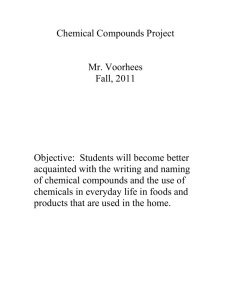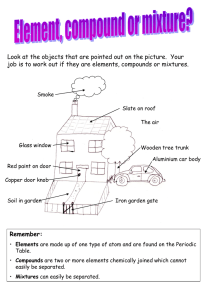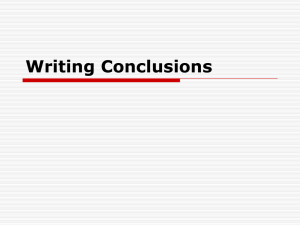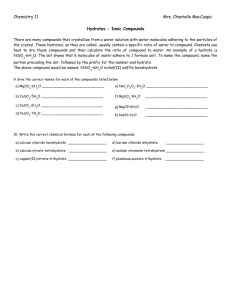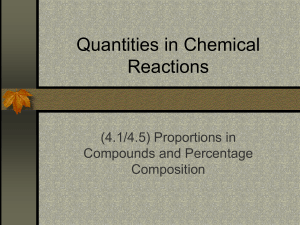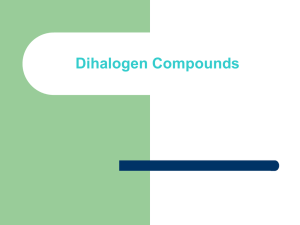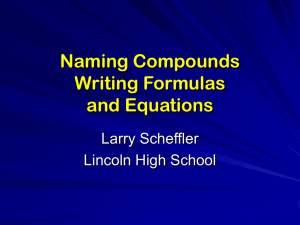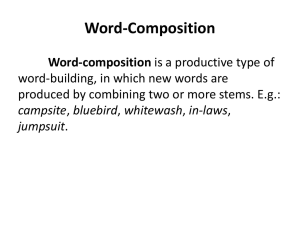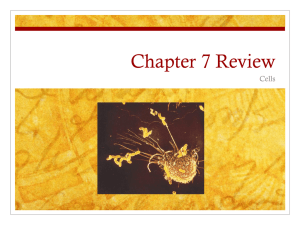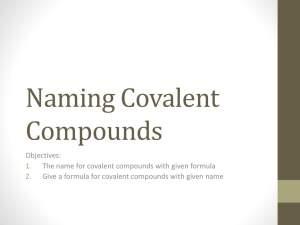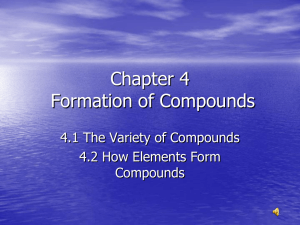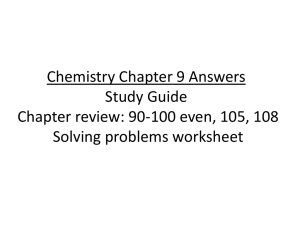Compounds
advertisement
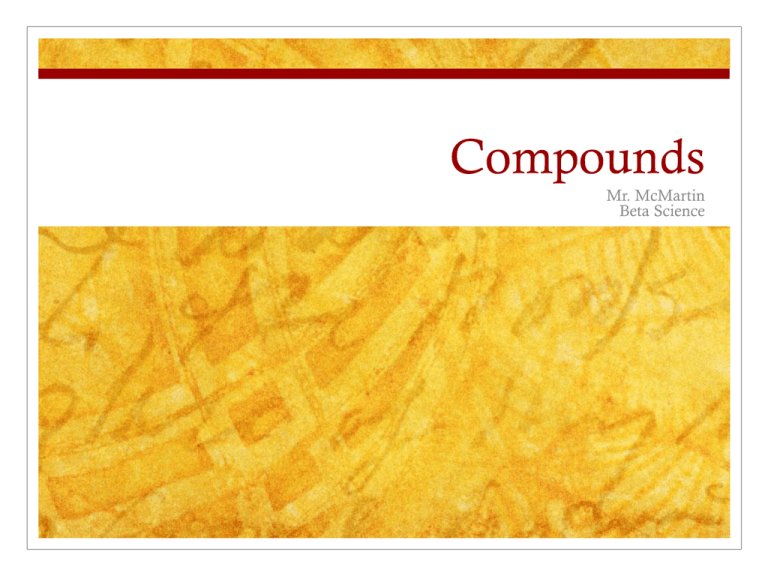
Compounds Mr. McMartin Beta Science Vocabulary Compound: a pure substance composed of two or more elements that are chemically combined. Compounds Made of two or more elements that are chemically combined. They combine by undergoing a chemical change or “reacting.” A particle of a compound is a “molecule.” Molecules of compounds are formed when the atoms of two or more elements join together. Familiar Compounds Compound Elements Combined Table Salt Sodium and Chlorine Water Hydrogen and oxygen Vinegar Hydrogen, carbon, and oxygen Carbon Dioxide Carbon and oxygen Baking Soda Sodium, hydrogen, carbon, and oxygen Ratio of Elements in a Compound Elements don’t randomly join to form compounds. They join a specific ratio according to their masses Ex. The ratio of the mass of hydrogen to the mass of oxygen in water is 1 to 8 or 1:8. This ratio is always the same. Every sample of water has a 1:8 mass ratio of hydrogen to oxygen, if it doesn’t have that ratio… then it is not water. Properties of Compounds Just like elements, compounds have their own physical properties. These include: Melting point Density Color Compounds can also be identified by their chemical properties. Reactivity Flammability Properties: Compounds vs. Elements A compound has properties that differ from those of the elements that form it. Ex. Sodium Chloride, or table salt, is made of two very dangerous elements- Sodium & Chlorine. Sodium reacts violently with water Chlorine is a poisonous gas. But when these two elements combine they form something that is completely safe to eat. It even dissolves in water without exploding. Breaking Down Compounds Some compounds can be broken down into their elements by chemical changes. Other compounds break down to form simpler compounds instead of elements. These can then be broken down into elements through more chemical changes. Ex. Carbonic acid gives pop its “fizz.” When you open your pop, carbonic acid breaks down into carbon dioxide and water. These can then be broken down into carbon, oxygen, and hydrogen. Methods of Breaking Down Compounds The only way to break down a compound is through a chemical change. Sometimes energy is needed for a chemical reaction to take place. There are two ways to do this: Apply heat and/or apply an electric current Compounds in Your World Compounds in Industry These are usually mined from nature and then made into the the elements or compounds needed for industry. Aluminum from aluminum oxide. Ammonia made from combining nitrogen and hydrogen Compounds in Nature Proteins are compounds found in all living things. Nitrogen makes proteins Carbon dioxide- plants use this in photosynthesis
